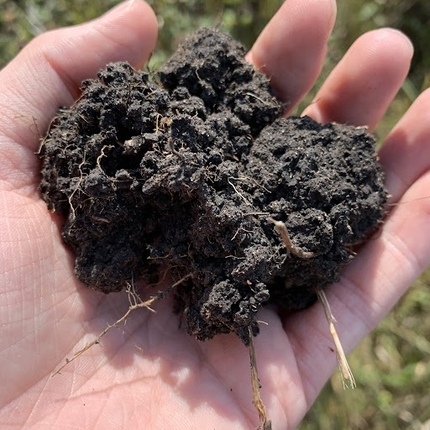By Kayla Bergman, former staff member
Biochar is an agricultural practice that is gaining in popularity—but what is it?
A soil amendment, biochar is a specialized form of charcoal suitable for use in the soil. The product can be created from a variety of feedstock, including corn stalks, wood, and even manure.
To create biochar, feedstock and manure are heated to high temperatures under controlled conditions. This process, called pyrolysis, uses a low oxygen or an oxygen-free environment.
The gas or oil produced from heating feedstock is used as a renewable energy source. The carbon left behind in that process is biochar.
Benefits of biochar
There are also many benefits that biochar provides for the atmosphere and the environment, both during the production process and once it has been applied to the soil.
The production process concentrates carbon that would have been released back into the atmosphere as the plant or manure decays, therefore reducing greenhouse gas emissions.
Biochar is extremely porous, allowing it to retain water—which plant roots can access when it is added to soil. Studies have shown a 5% biochar amendment in certain soil types increases the water holding capacity by up to 50%. Increased water holding capacity in the soil serves as a flood mitigation benefit to the watershed.
During a recent trial in Nebraska, when applied to irrigated lands, biochar was proven to reduce the need for irrigation by up to 37%. This is significant in a time of water conservation.
Biochar also retains both carbon and nitrogen in the soil. The carbon in biochar is transformed into an absorbent material that has charged particles, which attract nutrients alongside moisture. Increased absorption of nutrients in the soil leads to less runoff and leaching into waterways.
When compared to other soil additives, biochar is more stable and long-lasting. Because it does not decompose rapidly, biochar does not have to be applied annually. When it is applied, it can be done in combination with manure or other fertilizers to reduce passes through the field.
Effectiveness
Biochar can vary in its effectiveness. This depends on the variety of source materials, production process, and application rates.
Not all soils are well suited for biochar. Well-drained sandy soils take better to biochar while moderately well-drained and clayey soils may not always respond positively to biochar.
Biochar has the potential to help build soil, conserve water, produce renewable energy, sequester carbon, reduce inputs, and potentially increase yield on lower productivity ground. While it won’t work everywhere, biochar has the potential to be a valuable tool for farmers and landowners. This is a relatively new practice on agricultural lands, but seems to be one way for renewable fuel production to use a byproduct in a productive way.





